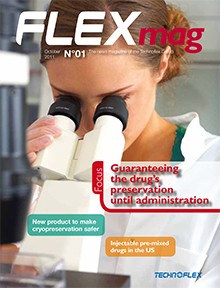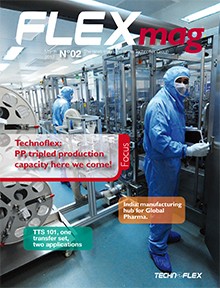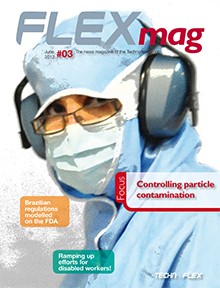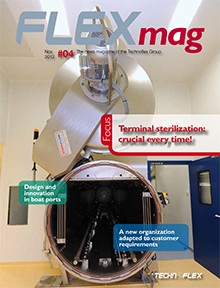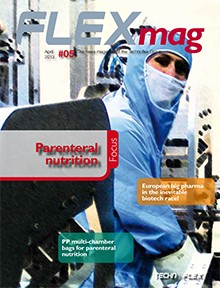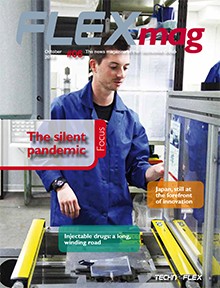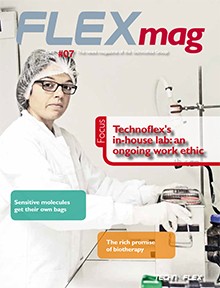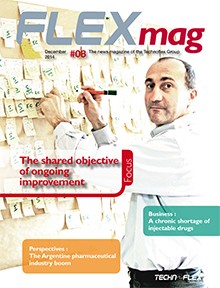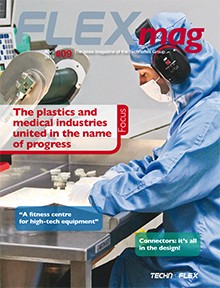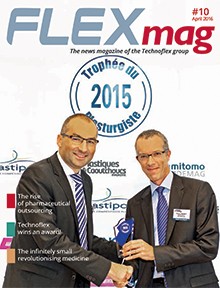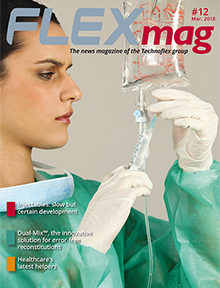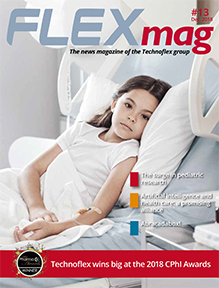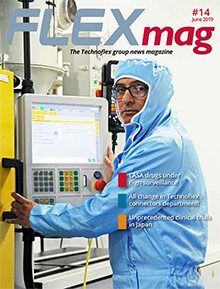The major concern of Safety and Environment
 Sylvie Ponlot: Jennifer, for the last year you have been Safety and Environment Coordinator. What exactly does your job consist of?
Sylvie Ponlot: Jennifer, for the last year you have been Safety and Environment Coordinator. What exactly does your job consist of?
Jennifer Hitte: My job covers two distinct areas. First of all, I have to ensure the safety of Technoflex employees at their work stations, whether in production or in the offices. The majority of my time is spent in the warehouses and in the bag and connector production area. In addition, I am also responsible for the environmental side of things.
SP: How do you ensure the safety of Technoflex employees?
JH: As operators of a facility, we are responsible for carrying out all the statutory checks on the on-site equipment, and that makes a long list! We check the electrical installations, hoisting equipment, machines, pressure vessels and fire safety system. Safety training courses are organized throughout the year, for example on autoclave operation or electrical qualifications. A prevention plan has been implemented covering risks related to the facilities, activities and equipment. There are also rules governing all the technical operations on machines or the cleaning of clean rooms.
SP: What about the environmental aspect?
JH: By its business in plastics processing and storage, Technoflex is what is called a Classified Installation for the Protection of the Environment (ICPE). It can generate risks of accidents which could be detrimental to people or the natural environment. There are therefore operating rules to be observed and we must ensure that they are complied with.
SP: Such as, precisely?
JH: The bags, for example, are tested and undergo autoclave sterilization. The water used is then treated by filtration before being discharged. Every six months, we check and analyse the wastewater and ground water.
Then there is the waste classified as dangerous by the regulations that is carefully monitored. It is listed by quantity, by category and according to the recycling or disposal method. Some waste is used for energy production, such as organic solvent or laboratory waste. Other forms, such as acids, are destroyed. Finally, the neon tubes and batteries are recycled.
SP: What are the consequences of non-compliance with these technical requirements?
JH: In the best-case scenario, we would be sent a formal order to solve the problem within an allotted time. If we were to fail to do so or if the situation should recur, the consequences would be more serious, such as a suspension of the authorization to operate, which would effectively shut down Technoflex. However, we work on the basis that the primary purpose of these requirements is to guarantee the safety of our staff and our environment, so there can be no question of not complying with them!
SP: Do you have other responsibilities?
JH: Since July, I have been a “qualified employee” in occupational risk prevention. I regularly take part in meetings of the Health, Safety and Working Conditions Committee where we pursue our objective of ongoing improvement. For example, we have achieved extremely positive results in the ergonomics of the various work stations thanks to the efforts of Xavier Erguy, our Ongoing Improvement Manager, and a consultant ergonomist.



